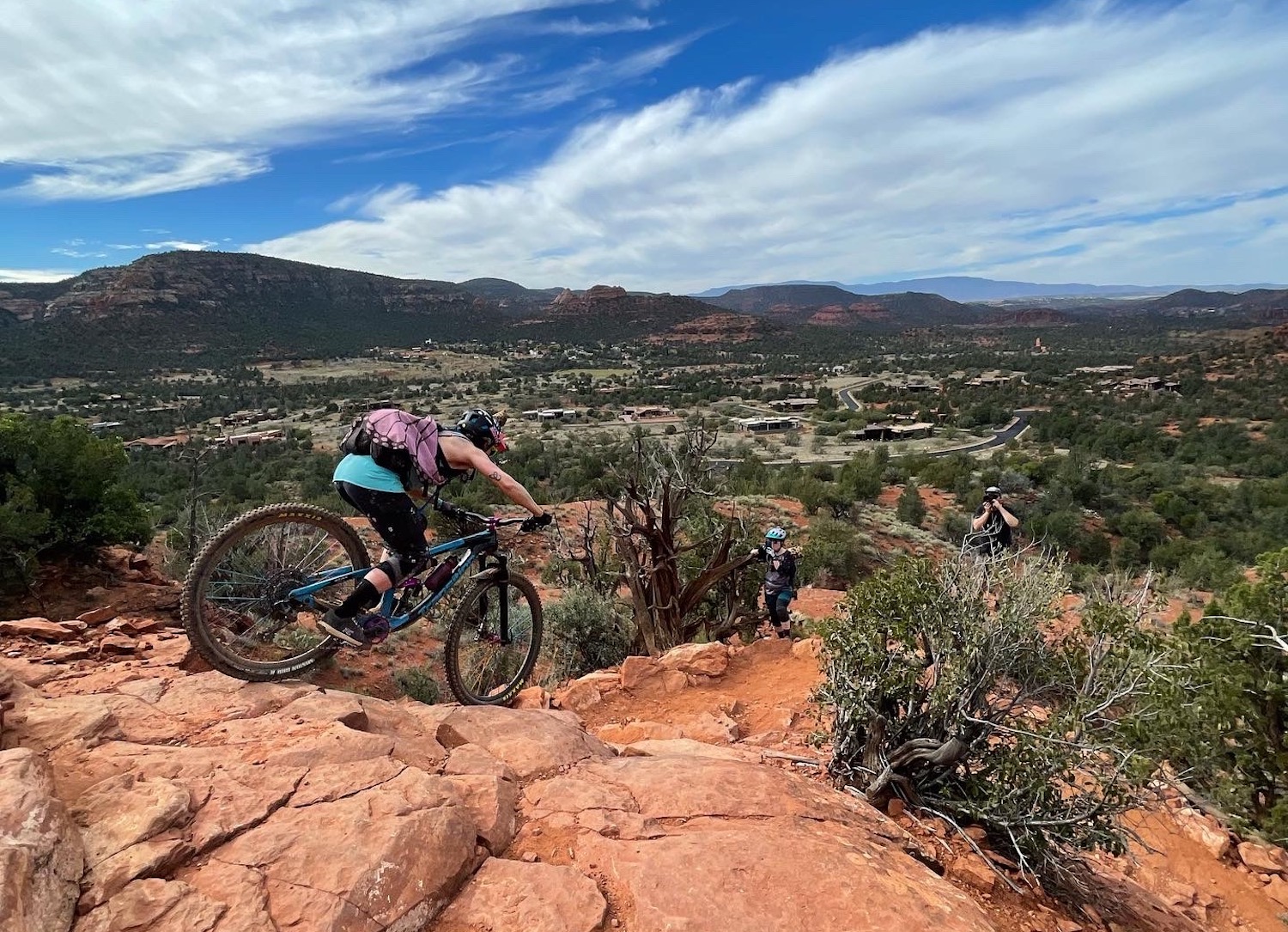
If you’ve ever been lucky enough to be a part of the fun explosion that is a Roam Fest mountain bike festival, you’re well aware of the supportive and contagious atmosphere that Ash and Andi Zolton have cultivated since they launched their first event in 2015. It’s a party on bikes, with workshops, group rides, demos, adventure film screenings, and after hours dance parties designed specifically for women, marginalized riders and genderqueer femme folks. It’s kind of like Disneyland for lady shredders, a space for women of all backgrounds to connect, learn, and share a love for riding bikes.
As their event schedule has grown throughout the years (this year’s Roam Fest will take place in Knoxville, Fruita, and Sedona), the Zoltons and their ever-blossoming crew of Roamie Homies have worked to create more inclusivity within the events, striving to learn, grow, and adapt their programming each year so that more female identifying riders can feel welcome. BIPOC fellowships, opportunities for para and adaptive athletes to ride, and inclusion-focused panels have become a central part of Roam’s programming, with the goal of making all riders feel welcome in these spaces. As the team has learned more about how to create safe and inclusive spaces, they’ve realized that it’s time to replicate those and build an even bigger impact. Outgrowing themselves turned into a very happy problem, and the team put their heads together to come up with a long-term solution.
The Roam Collective launched this year as a 501(c)3 nonprofit, as a new way to dedicate more time to creating inclusive spaces at Roam Fest and Grit Fest, as well as events in the greater industry. We caught up with Roam Collective Founder Ash Zolton, Executive Director Zoe Richards, and Director of Inclusion Rachel Olzer (who is also the ED of All Bikes Welcome and Grit Fest) to chat about what inclusivity looks like in the mountain bike space and beyond.
TGR: So there’s Roam Fest and now the new Roam Collective. Tell us about how they fit together and how the Collective was born.
Zoe Richards: The Roam Collective was inspired by the magic that happens at Roam Fest and the programs focus on inclusivity at the events. Essentially we have all this specific programming that happens at Roam Fest, like the BIPOC Fellowship, para and adaptive programs, and SHREDtalks panels. We’ve been developing this tried and true programming model that works really well in an event format, so we thought let’s keep elevating that within Roam Fest, but also create a nonprofit that can help bring those programs into the larger industry.
Ash Zolton: At Roam Fest, the inclusive programming was getting big enough and established enough that we really started to need an entire team to run that program. So we started thinking, what is the end goal here? And ultimately we want to keep elevating those voices more and more. The nonprofit format can help us share what we’ve developed with other organizations and events—everyone should know what the secret sauce is.
TGR: Tell us about the specific programs you’re starting with.
Zoe: We’re starting with four programs, two of which you’ve seen at Roam Fest already. We have our BIPOC Fellowship, which brings together a community of BIPOC riders at each event, and para and adaptive programs, which make the events more accessible for those riders. One of our new programs is the Roam Rowdies with Brooke Goudy, where 10 women of color participate in a year-long mentorship program, part of which is in person at Roam Fest. Another program we’re working on is the Roam Media Core, which has the goal of bringing more women of color into media.
TGR: What does it look like to build inclusivity into an event?
Rachel Olzer: I could go on for so long about this. Inclusion is a really big word and when you start to get into this work, there’s the constant tension between wanting to be specific in your mission and being broad in your reach. When you set out to create inclusive space, if you’re not specific you’re going to inherently exclude people. But also, if you’re not specific you’re not reaching anyone. One of things I really value about what Ash and Andi have created is setting the tone for being able to grow and learn and put that on display, which I think is often lacking. To say ‘look, we created this but it has these holes and now we’re working to plug these holes,’ that’s how we can move forward.
Zoe: Brooke [Goudy] said representation is in the invitation, and that’s what we keep coming back to. Ash and Andi created this magical space and now we’re trying to get the word out that this space exists for all these demographics.
Ash: Exactly. Being invited by someone who you can see yourself in is infinitely more powerful. It’s one thing for me as a white person to invite a Black person to an event. It’s another for Brooke or Rachel to give that vote of confidence that you can be trusted and comfortable and safe here.
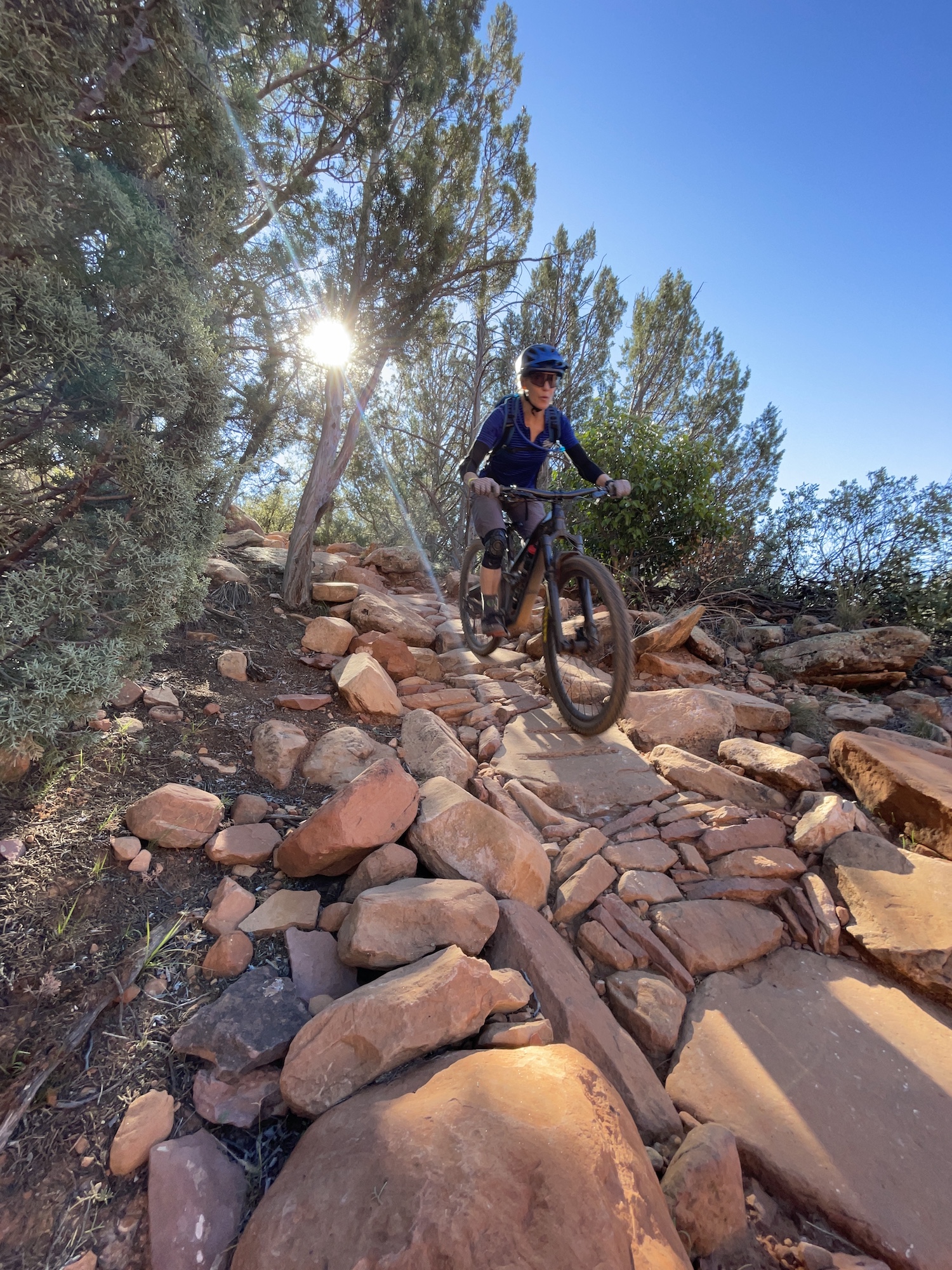
TGR: Can you talk about the importance of creating community within these larger spaces so that folks feel welcome?
Ash: There are a lot of different barriers that make getting into mountain biking intimidating just in general. It’s even more intimidating for women to get into outdoor sports, and for non-traditional riders, the more non-traditional you get, the more barriers there are to feeling welcome and safe at those events. Inclusion programs lower that intimidation by creating a smaller community within the event so those folks can come and hang out with other riders that look like them.
Rachel: It’s easy to point to financial barriers, which are still real, but on a deeper level, once you’re here, what is there for you? The BIPOC Fellowship program is really great because it helps remove financial barriers to get people there, but it also provides community once you get here. Incorporating people’s background into the actual experience is really important, which we see with Brooke’s program too, where she’s bringing Black women in under this really great mentorship program.
Ash: I think a great example of this is that the first year we did a BIPOC scholarship we had a BIPOC and allies ride. It was beautifully huge with all the allies. But our immediate feedback was that the BIPOC riders want to do an ally ride but they also want to do a ride with just themselves because it’s so rare that these folks get to hang out with other folks that look like them. Now we do a BIPOC ride so that folks who identify can just go out and ride and get to experience this amazing opportunity to be together, then come back and join the party with the rest of us.
Rachel: Roam has grown so much which is amazing, and that makes these smaller groups so much more important. As a Black woman who’s been a mountain biker for a long time, it’s so rare to find other women of color in this space. I didn’t have mentors who looked like me for most of my time in this world. The ability to learn and look towards other people doing this work is really important.
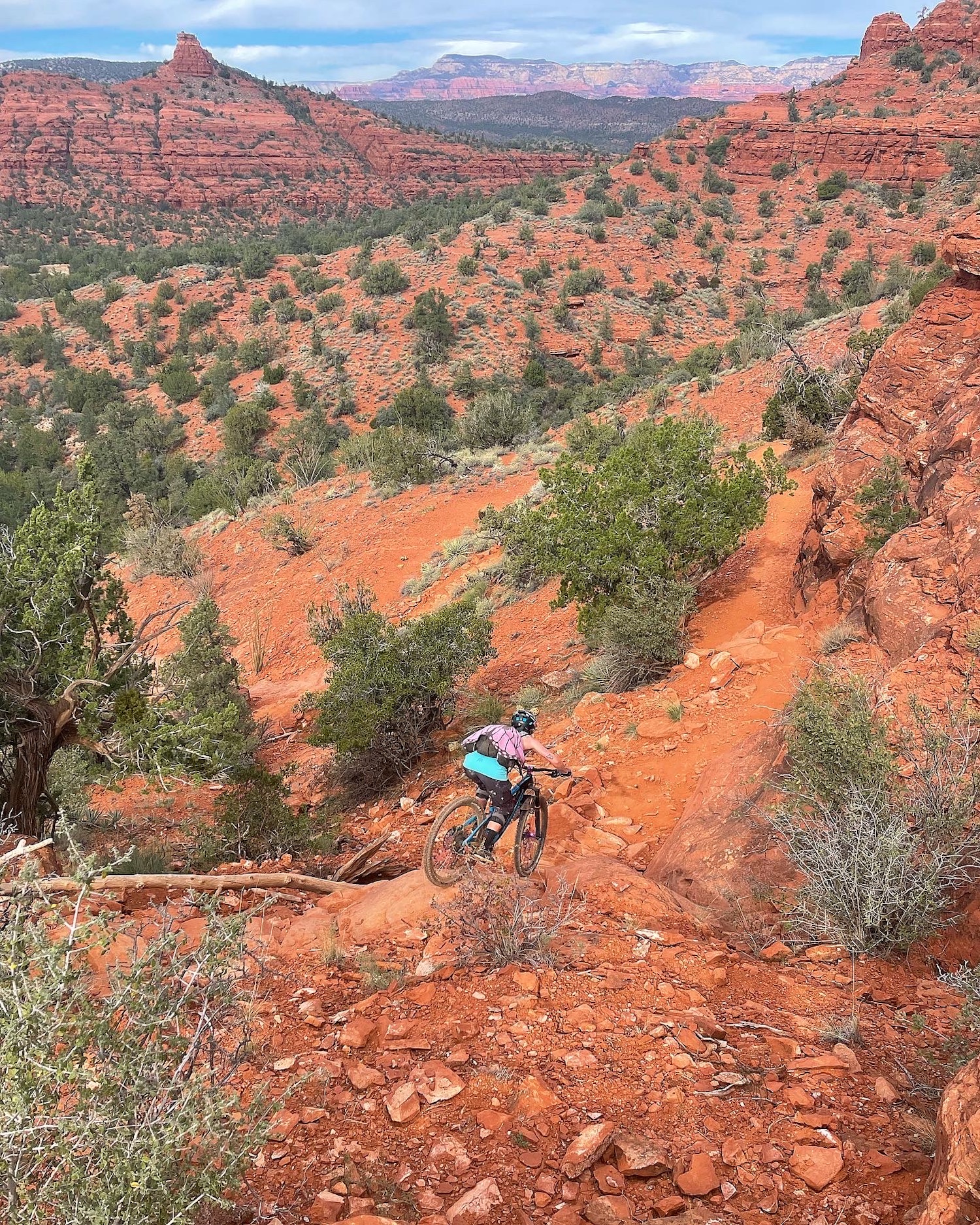
TGR: Where do you see the ROAM Collective going beyond the current programming?
Ash: For us, it's always been about collaboration over competition and the Roam Collective grew out of that concept. We don’t have to compete with other organizations. We’re here to celebrate and we want to collab, whether it’s an organization asking for consultation or wanting to bring an established program into their event, we can use the Collective to help that process develop.
Rachel: We always have more we can do and the value is continuing to evolve what the definition of inclusivity is. Was this space always as inclusive as it is now? No. Is it as inclusive as it can be now? No. Ultimately, I want to see a better mountain bike space. I’ve been in this space for 10 years and for so long it was the same things, and it was hard for me to go to events. Coming together now, joining the efforts of separate nonprofits, allows us to create more inclusive programming to better serve our entire community and industry. That’s why we’re here.
Support the Roam Collective here.



__video_thumb.jpg)


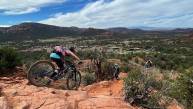
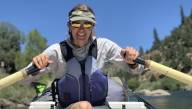
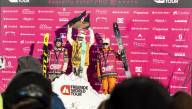
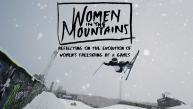

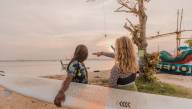

__video_thumb.jpg)

__video_thumb.jpeg)
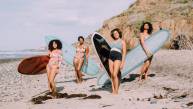
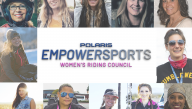
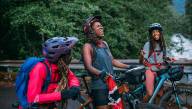
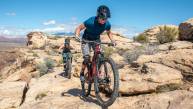
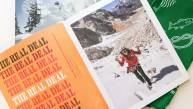
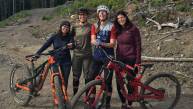
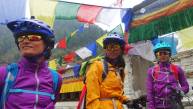
Hayarpi
March 23rd, 2023
It’s inspiring to see the Roam Collective working to increase representation and make the industry more accessible for all! Thank you for highlighting this important work! | Junk removal services in Fort Pierce Florida. Click here for more information about our hauling and pick up services near you in St Lucie, Florida.
urcitygf24@gmail.com
April 1st, 2024
Thanks to provide information.
https://www.urcitygf.com/